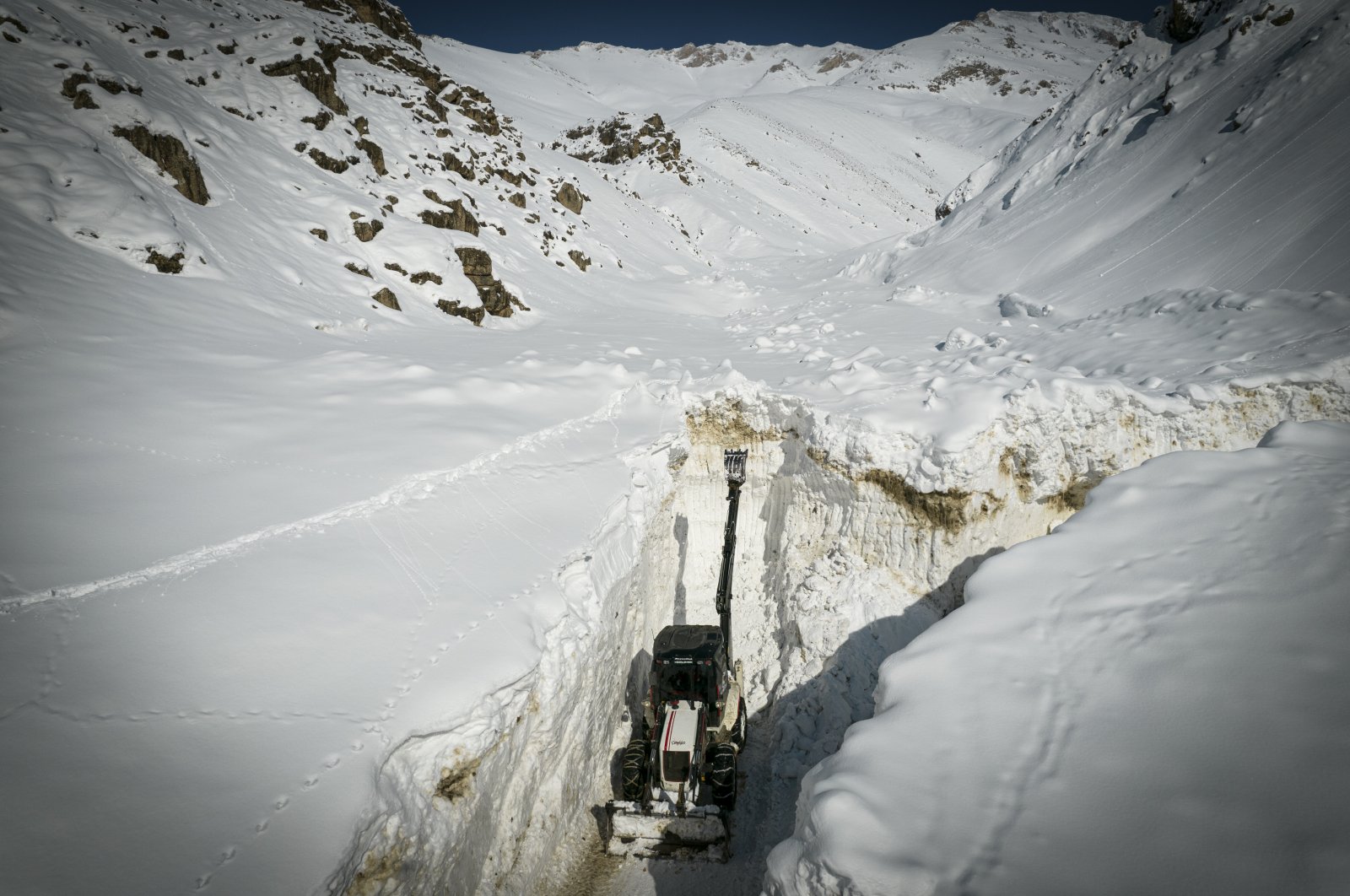Bahçesaray is among the cities that have seen the heaviest snowfall in Turkey and although the effects of climate change are being felt everywhere, the winter challenges remain the same for this “ninth planet”, as some locals call it. It’s an apt nickname for the town of some 14,000 people that is cut off from the rest of the world with its ubiquitous thick piles of snow.
The city is used to harsh winters, a staple of eastern Turkey, but the country best remembers it as the epicenter of two disasters two years ago, in the space of two days. Karabet, a treacherous passage connecting the city to the center of Van, the eastern province with which Bahçesaray is administratively associated, was the site of an avalanche on February 4, 2020, which buried a minibus and a bulldozer. While frantically searching for two people buried in snow, search and rescue teams themselves fell victim to another, larger avalanche. Forty-two people, including 11 gendarmerie officers and nine village guards were killed and 84 others injured in the double disaster.
A sliding iron gate with a large padlock is an unusual sight for a city road, but a necessity for Bahçesaray. A sign reading “the road is temporarily closed due to adverse weather conditions” hangs from the gate, the perimeter of which is cleared of snow. But a few meters down the road, columns of snow block the place. A crew from the General Directorate of Highways (KGM) has the key and must inform the authorities, including the commander of the local gendarmerie, before opening it to visitors. Few people are allowed in and out and although the road appears clear at first, mountains of snow piled on two sides and intimidating white masses piled up on the slopes make it impossible for travelers to traverse the terrain inexperienced.
KGM crews escorted me along the 40 kilometer (25 mile) route where cell phone reception is zero and blizzards constantly minimize visibility. Crews reported 16 potential avalanche points along the way. Always along the route, they remembered all the places where their colleagues had been killed in avalanches in the past. After a while, heavy snow and blizzards made progress impossible. We returned to where we started to reach the city and took the longer route of 300 kilometers, through the neighboring province of Bitlis.
Five hours after leaving central Van, I finally reached Bahçesaray, which spans the Müküs stream. The locals gave me a warm welcome and one of the first jokes I heard was about the town‘s winter past. “The roads were completely cut off for nine months,” said a resident. The situation has improved now with modern snowplows and safety measures that keep the roads clear longer. “We have been God’s country for nine months and a district of Van for the other three,” one resident joked.
Winters are a boring occasion for the city due to closed roads, but they have found a way to avoid the boredom: chess. From homes to cafes, chess is a hugely popular activity, unlike elsewhere in the country where men usually spend time playing cards and okey, a type of rummy, in cafes to kill time.
Ömer Tuğrul Kundakçı, new governor of Bahçesaray district, accompanied us to the most remote village, which is part of Bahçesaray. The road to Dikmetaş was blocked by piles of snow reaching a height of up to 8 meters (26 ft). The snow plows cleared the snow while I followed Kundakçı and other officials. Kundakçı said they are looking for permanent solutions to winter-related problems and are carrying out projects including tunnels and new roads that will facilitate transportation in winter.
New roads and tunnels will also reduce avalanche risk, but they won’t bring back lost lives. Ahmat Alav lost his wife Muteber in a 2020 avalanche. She was returning to town from visiting her grandchildren when the avalanche buried the car she was traveling in. Alav still mourns his death but he feels most sad for the members of the search and rescue teams who died trying to save his wife and others. “They died for us. I wish that never happened,” he said.
Although residents have learned to live with months of heavy snowfall, the situation is different for others, such as healthcare teams. Dr. Büşranur Dağ and nurse Celal Orta are among them. They tried to reach two patients in need of home care in Dikmetaş but even without snow it is a disturbing experience. The steep road leading to the village is covered with a thin layer of ice that no vehicle can take. After a walk of about 1 kilometer, they reach the village. “I really like Bahçesaray except in winter,” said Dağ, who started working in the city about a year and a half ago. Healthcare workers are among those constantly at risk from avalanches. They are afraid but their passion for their work helps them to overcome this fear.
“Geography is kader (destiny) but here it is keder (misfortune),” said local Kerem Oktay.

